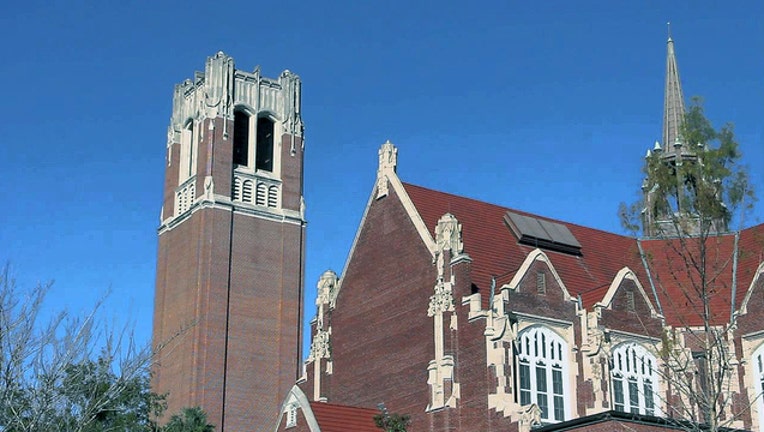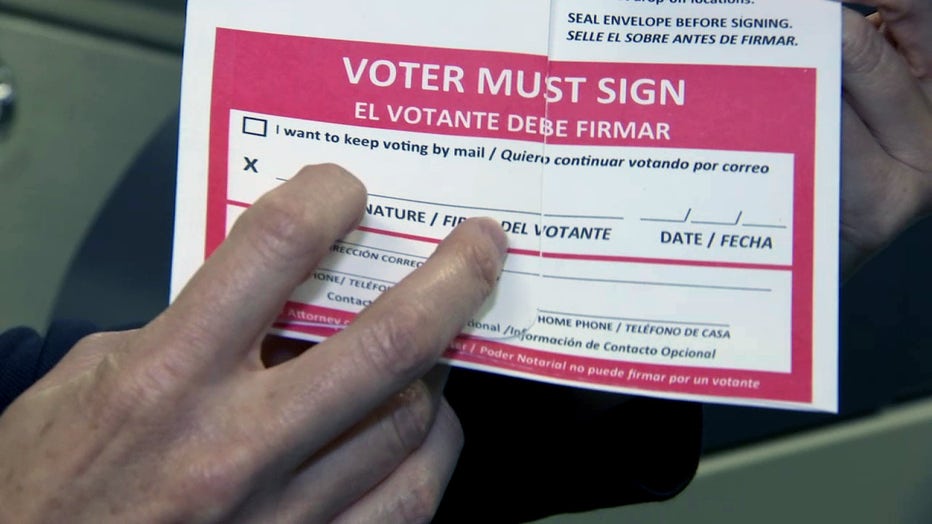UF reverses course on professors' testimony

Century Tower at the University of Florida campus in Gainesville, Florida. [Photo courtesy: UF]
GAINESVILLE, Fla. - Reversing a decision that riled faculty members and put school administrators under scrutiny, University of Florida President Kent Fuchs on Friday cleared the way for three professors to serve as expert witnesses in a high-profile legal challenge to a controversial state elections law.
Political science professors Daniel Smith, Michael McDonald and Sharon Austin were hired to testify as witnesses for plaintiffs challenging the constitutionality of the law (SB 90) in federal court. Among other things, the law, passed in April by the Republican-controlled Legislature, makes it harder for people to vote by mail.
PREVIOUS: Gov. DeSantis signs GOP-drafted voting bill; lawsuits already filed
But the university drew national attention and widespread criticism after a court document revealed last week that the school was blocking the professors from testifying. According to the court document, the university told the professors that their serving as witnesses would "create a conflict" for the university, in part because it would pose a conflict of interest to the state’s executive branch.
UF later said said the professors could testify if they didn’t get paid or use school resources
Fuchs, however, wrote in a statement Friday that the professors are free to be hired as expert witnesses "assuming the activity is on their own time without using university resources."
Fuchs also said the university will go ahead with convening a task force to review the school's practices "regarding requests for approval of outside activities involving potential conflicts of interest and conflicts of commitment."
"In particular, the task force will make a recommendation to me on how UF should respond when employees request approval to serve as expert witnesses in litigation in which their employer, the state of Florida, is a party," Fuchs wrote.
The task force will include the school’s provost and chief academic officer, deans of the university’s journalism school and college of law, two professors and its chief officer of compliance, ethics and privacy.

RELATED: Florida's new voting law target of another lawsuit
The university’s original decision to prohibit the professors’ testimony drew national headlines and criticism from faculty members.
"Professors Smith, McDonald and Austin are renowned experts in the field of voting rights. They are also members of our faculty union. Since Oct. 13, leaders of our grievances team, as well as our executive committee, have met around the clock with these three courageous faculty members, to ensure that they will be able to do what they do best; pursuing scholarship in the public interest to ensure that all eligible citizens have equal access to our democracy," Paul Ortiz, president of the university’s chapter of the United Faculty of Florida union, said during a news conference Friday morning before Fuchs’ announcement.
After the announcement, Ortiz commended the administration for reversing its earlier decision but called for an increased commitment to academic freedom.
"This is a positive step forward and I applaud President Fuchs's decision today to reverse the decisions that had prevented Professors Austin, McDonald and Smith from engaging in scholarly activities. However, UFF-UF is looking for a clear and unambiguous commitment to academic freedom going forward," Ortiz said.
State Agriculture Commissioner Nikki Fried, a graduate of the university who previously criticized the school administration on the issue, also called for "safeguards" that would prevent professors from being blocked from participating in future litigation.
"It’s welcome news that university administration is reversing this mistake --- but it never should have happened in the first place. I hope that stronger safeguards for independent intellectual freedom are put into place, because free speech and the truth cannot be bound by political headwinds," Fried said in a statement.
PREVIOUS: DeSantis takes aim at elections -- again
The federal court challenge involves an elections law that was a top priority of Gov. Ron DeSantis. Attorneys for plaintiffs in the case sought to take deposition testimony from a representative of the governor’s office about any involvement by the DeSantis administration in trying to prevent the professors from serving as expert witnesses.
But Chief U.S. District Judge Mark Walker released a decision Thursday that quashed a subpoena issued to the governor’s office by attorneys for the plaintiffs. The plaintiffs sought information about communications between the governor’s office and people in the university system about the law or expert witnesses, but Walker rejected the request based on the governor’s office claim of executive privilege.

